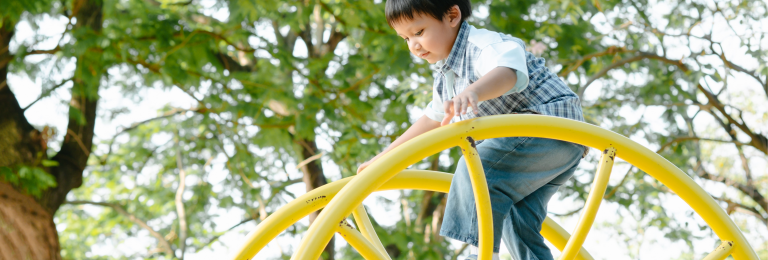Observation based supervision
Children should be encouraged to play. We all know this and agree with that statement. But within children’s play situations may arise that cause confrontation, create risk and make adults nervous. What should we do in these situations? Observe, be vigilant, be patient.
Observe
Observation is a skill that takes time to acquire. Observing children at play, especially when there are a lot of them, means being open with your attention and scanning the area while showing a caring interest. This allows you to see if confrontation or risk may be developing and move in to an appropriate position should intervention be required. However, it also involves trust in the children and the ability to wait and see if the children are able to manage the risks or deescalate the confrontation through problem solving strategies.
Vigilance
Being vigilant within a play setting means ‘having an ear to the ground’ but avoiding interfering as much as possible, while also sending fewer controlling messages. ‘Helicopter’ parents are the antithesis of this where they are constantly monitoring play at a close proximity and blurting out phrases such as ‘careful’, ‘not too high’, ‘that’s too fast’ and other negative phrases that limit the child’s ability to test themselves. Taking a step back is not always easy, but allowing children the space and opportunity to prove themselves builds trust, confidence and self-esteem.
Patience
Patience is a virtue. Often our first reaction to confrontation or perceived danger is to jump in and solve the issue. Quite often during children’s play, this occurs before the children have had the opportunity to find a solution themselves. Using arguments and disagreements as an example, when shouting and crying occurs adults usually step in and find a solution for the children. This intervention not only imposes an adult ‘social construct’ on the children and their play, but undermines the children in two ways. First, by not trusting the children to be able to solve their own problems, and secondly by not giving the individuals the opportunity to practice their own problem-solving skills. Instead of suggesting a solution, listen to the argument take place and if the adversaries are unable to resolve it, ask open ended questions such as “what can you do that would be fair to everyone?”.
With all these components, adult intervention may be required if a situation has genuine risk, bullying is taking place or someone is going to get hurt.
These three strategies build confidence, decision-making and problem-solving skills, trust and much more in our children, creating more imaginative and active play as well.
Source – Chris Wright
